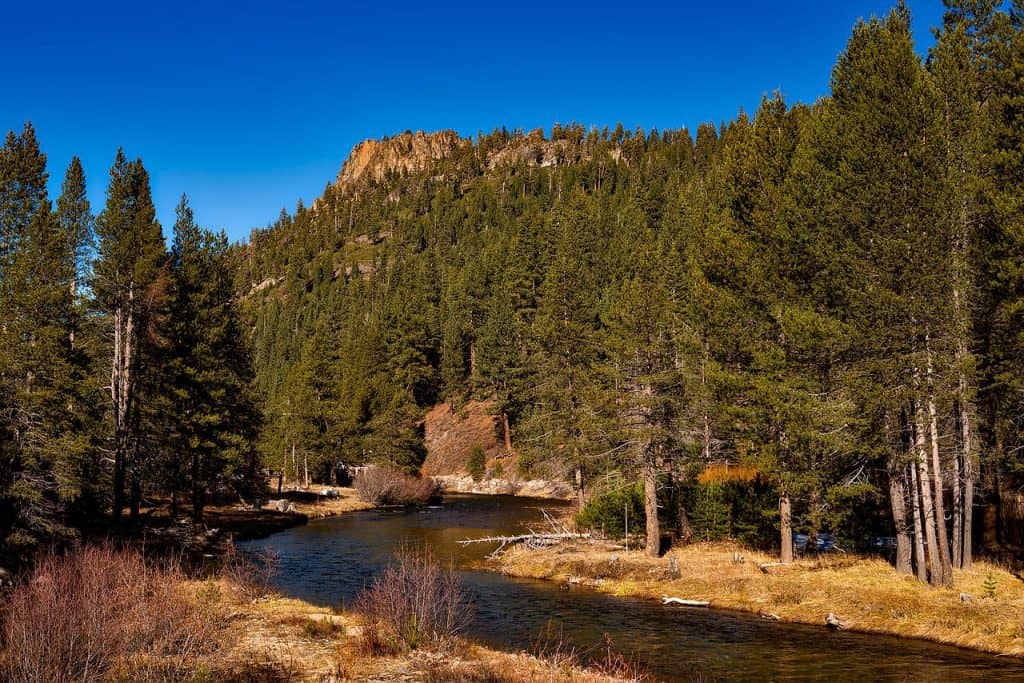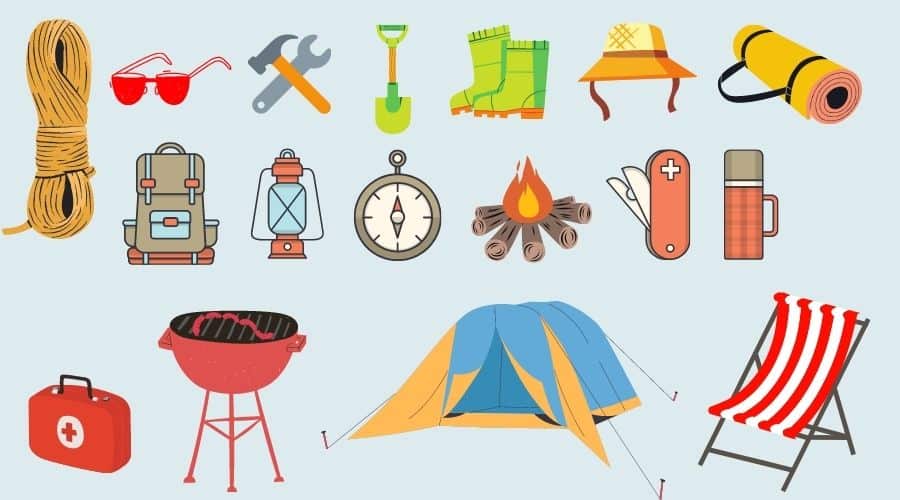
You may have heard the term backcountry camping before. For some, it’s the only type of camping they do. If you’ve heard the term and are curious whether wilderness and backcountry camping are for you, we’ve put together this ultimate guide for beginners.
Table of Contents
What Is It?
Backcountry or wilderness camping refers to the environment. Unlike trailer or campground camping, backcountry means you are pitching your tent in places that don’t have established camping sites and no facilities. More often than not, it requires you to hike or paddle to your campsite.
The major appeal to wilderness camping, at least for me, is the solitude and connection to the environment. There is little chance other campers will bother you. You will need to put into practice skills you don’t use often. And you will disconnect from the stress and sounds of the modern world.
Where To Start?
Wilderness and backcountry camping takes a bit of planning. Finding a place that allows backcountry camping is essential. You don’t want to be trespassing or get a fine for camping somewhere you’re not allowed. If you want to go on privately owned land, you need the owner’s permission.
In Canada, where I live, many provincial parks have specific designated areas that allow for wilderness camping. There is an access fee and usually for parking your car for the duration of your trip.
Crown land is another option for us in Canada. It’s government owned land that anyone can use for hiking, camping or hunting. The downside to crown land is it isn’t easily identifiable.
Look for options like these in your area. Government campgrounds or hunting reserves often have information about backcountry hiking and camping on their territory. For less experienced campers, this could be the best option.
The nice thing about doing a trip on reserves and parks like this is they often have park rangers that you can contact if you’re in trouble.
Planning
Plan your trip ahead of time.
- Decide how far you will travel in a day, where you plan to camp and what the coordinates are.
- Make sure you have a map of the area.
- Check the weather is supposed to be like before you leave. This will help you plan accordingly.
- Learn what kind of wildlife is in the area you plan to be. This will tell you what you need in terms of protection and food storage.
- Find out if you’ll need to purchase a permit to camp and what the rules are.
Basic Equipment

It should go without saying that backcountry camping means limited equipment. You need to carry everything you need on your back. With experience, you’ll learn what you need to survive. After years of experience, I’ve learned that it takes very little to survive. There are some basics you’ll need for a wilderness camping trip.
- Rucksack/Hiking Bag
- Ax
- Knife
- Cookware
- Tent/Bivouac Bag
- Sleeping Bag
- Sleep Pad
- Lantern
- Lighter / Magnesium Fire Starter
- Silicon/Nylon Ground Sheet
- Paracord
- Camping pillow
- GPS – handheld or wrist worn
- Compass and Map
- First Aid kit
- Bear Spray
- Fishing like and hooks
- Water Bottle / canteen
We have a camping checklist here, it also includes a printable pdf version.
Basic Skills
There are a few basic skills that are absolutely necessary when backcountry camping. Practice these skills at home so that you can confidently rely on them when you are in the field. These skills can either be learned at home with some practice or taught through a course near you.
This is an essential skill for anyone heading out into the wild on their own or even with others. The ability to use a map and compass to find your way could get you out of the woods if you become lost. Even if you bring a GPS, things can go wrong and you’ll need to rely on analog technology. Even in the military, we practice navigation with a map and compass and rarely ever use GPS.
Fire Building
It isn’t camping if you don’t have a fire. Being able to build a fire is one of the most rewarding skills to have. It is at its core the first real skill the human species ever learned. Having a fire to cook on and keep you warm raises morale and will make those chilly nights under the stars that much better.
First Aid
Taking a basic first aid course may not be essential, but it’s a good idea. You will be happy that you can help yourself or someone else in a medical emergency. It could mean the difference between a great story and a tragedy. In my opinion everyone should have first aid training, regardless if they are going camping or not.
Food and Water
For trips that may last several days, food is a major consideration. It’s difficult to bring fresh ingredients so you may have to rely on ready to eat meals (MREs) and dehydrated food. Some fruits and veggies can last in your pack for a couple of days. If you have a dehydrator, there is a lot you can do. You can even dehydrate chili and pack it in a ziplock bag. MREs are a smart choice as well. They are full of the nutrition you need daily.
Since water is heavy, it will be impossible to bring all the water you’ll need. Knowing where fresh water is ahead of time will make your life a little easier. Remember to boil all the water you are thinking of drinking. Even if it looks clear, it can be full of bacteria.
Safety
Though backcountry camping is a lot of fun and a great experience, it isn’t without its risks. Anything can happen out there and you need to be prepared.
Make sure you know how to deal with wildlife like bears. I don’t think I need to tell you why this is important.
Tell your family where you are going, give them coordinates of where you will make camp (if you can). Give them the number of the park rangers. And tell them how long you will be gone. Armed with this information, they can act if you don’t come back when you say you will. Don’t change your itinerary or route on a whim. People get lost all the time because they are overconfident.
Have Fun
Lastly, the most important thing is to have fun. Wilderness camping has a way of making you feel calm and at peace. It also makes you realize how unimportant a lot of things we think we need are. When you learn to make do with the bare minimum, you begin to learn what’s really important.
If you’ve been curious about backcountry camping, my advice is to try it. Try for one night at first. Learn what you can. Talk to people who have wilderness skills you may need. As you grow more confident, go on longer trips. In time, you’ll crave the peace and quiet of sitting at a campfire far from your busy life.
Remember to take all your trash out of the wilderness with you. It is a good practice to follow the camping etiquette of “leave no trace”.

 CuteCamper
CuteCamper
